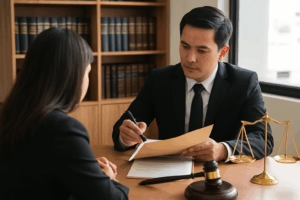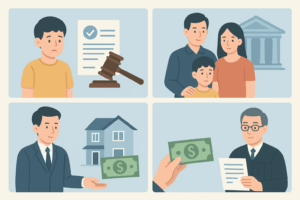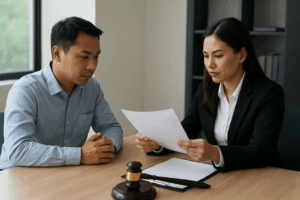Types of Criminal Cases in Thailand: What You Need to Know from a Leading Law Firm in Bangkok
In Thailand, criminal cases are not treated equally under the law. The types of criminal cases in Thailand vary depending on the nature of the offense, its impact on society, and the role of the victim. Understanding these legal classifications is essential for anyone seeking to navigate the Thai justice system—whether you’re an individual facing criminal allegations, a business seeking legal protection, or a foreign investor working with a law firm in Thailand.
This article, provided by a lead law firm in Bangkok, outlines the three primary types of criminal cases under Thai law. It also explains the legal distinctions that affect prosecution rights, settlement options, and statutory time limits. The information is grounded in Thailand’s Criminal Code and Criminal Procedure Code, and is intended to assist clients and legal practitioners seeking a qualified lawyer in Bangkok or looking to consult with a reputable law firm Bangkok wide.
Overview: Understanding Criminal Classifications under Thai Law
According to the Thai Criminal Procedure Code and Penal Code, criminal cases in Thailand can be classified into three main categories:
- Criminal offenses against private individuals (also known as compoundable offenses)
- Public criminal offenses (non-compoundable offenses affecting public order or state interests)
- Public criminal offenses involving private victims (non-compoundable, but with civil claim options)
Each category carries different legal procedures, rights of prosecution, and outcomes, and it’s advisable to consult a qualified lawyer Bangkok based or in other Thai provinces to assess your situation.
- Offenses Against Private Individuals
(Compoundable Offenses)
- Offenses Against Private Individuals
(Compoundable Offenses)
Legal Definition and Nature
These offenses affect only the immediate victim and do not disturb public peace or security. They are generally viewed as private disputes and must be initiated by the injured party. According to Section 96 of the Penal Code, the victim must file a complaint within a specific time frame, or the case may be dismissed.
Key Legal Features
- Right to File a Complaint: Only the injured party may initiate the criminal proceedings, either by filing a complaint or by initiating a private prosecution.
- Compromise Permitted: These cases are subject to settlement or reconciliation at any stage, even after being brought before the court.
- Three-Month Limitation Period: The complaint must be lodged within three months of becoming aware of the offense and the offender’s identity.
- Withdrawal with Court Approval: Upon mutual agreement, a complaint can be withdrawn with the consent of the court, per Sections 39 and 40 of the Criminal Procedure Code.
Examples of Compoundable Offenses
- Defamation and libel under Penal Code Sections 326–333
- Fraud and breach of trust
- Embezzlement (often in employment contexts)
- Trespass (Penal Code Section 362)
- Public Criminal Offenses (Non-Compoundable Offenses)
- Public Criminal Offenses (Non-Compoundable Offenses)
Legal Concept
Public criminal offenses, also called “offenses against the state,” are actions that threaten national security, public safety, or societal welfare. These cases do not require a complaint from a victim; instead, they are prosecuted by the state once the authorities become aware of the incident.
As a law firm in Bangkok working with local and international clients, we frequently assist in navigating these serious charges—especially where foreign nationals may be unaware of the strict criminal liabilities under Thai law.
Key Legal Features
- Initiated by the State: Investigation and prosecution are handled by the police and public prosecutors.
- Settlement Not Allowed: These cases cannot be compromised, even if the accused and victim reach a private agreement.
- Prosecution Periods Vary: The statute of limitations depends on the maximum penalty and ranges from one to twenty years.
- No Consent Needed: Authorities may pursue prosecution regardless of the victim’s stance.
Examples of Public Criminal Offenses
- Drug offenses, governed by the Narcotic Act B.E. 2522 (1979)
- Unlawful possession or use of firearms or explosives
- Illegal gambling operations
Serious traffic violations, such as drunk driving or causing death through negligence





